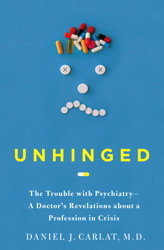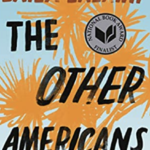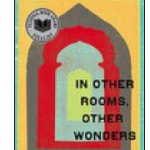Unhinged by Daniel J. Carlat
The following is a book review that I wrote which was published in the Journal of the American Academy of Psychoanalysis and Dynamic Psychiatry. It is followed by a brief Q & A with the author.
 UNHINGED
UNHINGED Daniel J. Carlat, M.D. Free Press 255 pages 2010
Dan Carlat, in addition to practicing psychiatry, writing his popular newsletter and blog, editing a series of psychiatry books for Lippincott/Klowers (one of which I co-authored) and writing monthly blogs for Psychiatric Times periodically (as do I) has written expose pieces about psychiatry for the N.Y Times and other widely circulated publications. He has spoken out about the influence of the pharmaceutical industry on the practice of psychiatry and particularly the large amount of money earned by psychiatrists from the drug companies often without disclosures. This latter point has been considered to have ethical and legal ramifications. Knowing this background, I eagerly approached the opportunity to review his new book Unhinged published by Free Press (2010) and given a subtitle of “The Trouble with Psychiatry-A Doctor’s Revelations about a Profession in Crisis.”
Early in the book, Dr. Carlat shared his own experience as a practicing psychiatrist where he specialized in prescribing medications and referred patients in need of talk therapy to a “psychotherapist.” He expressed his view “that most people are under the misconception that an appointment with a psychiatrist will involve counseling, probing questions and digging into the psychological meaning of one’s distress.” He goes on to site data which shows that 1 out of 10 psychiatrists offer therapy to all their patients. (I am not sure if this is a valid point since some patients clearly don’t need or want psychotherapy.) He then talks about the well known income differential which favors providing psychopharmacology treatment over psychotherapy. He provides a case history where he did not tell a patient that psychotherapy might work just as well as medication. He said that he decided upon medication because he received little training in psychotherapy during his three years of psychiatry residency (Mass General) and that he “ doesn’t do psychotherapy because “I can’t do psychotherapy.” One of the themes of this book is Carlat’s odyssey to ultimately deciding to learn more about psychotherapy and follow a mode of his father who is a psychiatrist and develop a practice which combines psychopharmacology and psychotherapy even if he doesn’t make quite as much income as he did in the past. He shares the interactions with colleagues, teachers and mentors as well as patient vignettes, which lead him to this decision.
This book also examines other controversial issues. For example, Dr. Carlat discusses DSM which he calls “ The Bible of Psychiatry.” He believes that the tradition of psychological curiosity has been dying a gradual death and that DSM is in part the cause and the consequence of this transformation of our profession. He argues that as a result psychiatrists are less interested in “why” and more interested in “what”. (I thought that psychiatrists could chew gum and do other things at the same time. If we continue to use and refine it, DSM allows us to communicate better, do research and get paid.) Carlat interviewed both Bob Spitzer and Alan Francis, the leaders of DSM III and IV respectively who are both quite critical of the emerging DSMV.
Not surprising, knowing of the previous writings of the author, a good part of the book dealt with the relationship between psychiatry and the pharmaceutical industry starting off with a chapter on “How Medication Became the New Therapy.” There is a description of the evolution of various drugs used in psychiatric practice including the story of Prozac as well as examples of how and why new drugs are introduced as patents on old ones expire. While most of these stories are fairly well known to psychiatrists, it may be surprising to see the behind the scenes descriptions of how side effects such as sexual dysfunction and suicidality were initially minimized and ultimately handled.
The chapter on “How Companies Sell Psychiatrists on their Drugs” reflects some of the writing that Carlat has made in the popular media. He personalizes this important topic by describing his own previous relationship with various pharmaceutical representatives. He also reveals the fact that drug representatives have access to each doctors’ prescribing pattern before they visit him or her. He discusses how friendliness and bringing little gifts such as books or one’s favorite Starbucks coffee have played a subtle but distinct influence on doctors and their prescribing habits. (There have been recent restrictions on these practices.)
Dr. Carlat also outlines his own experience of being a “hired gun” where he gave paid talks to primary care doctors and psychiatrists earning as much as $30,000 in one year. He told how he and his wife were flown to NY and stayed at luxurious hotels and ate in fine restaurants paid for by the pharmaceutical firm for which he was a speaker. He eventually decided that this was morally wrong and stopped this practice. He did go on to write about other psychiatrists whom he reports have made millions of dollars and in some cases were also receiving research grants. He told how they were not reporting to their universities, the income that they were receiving which was required. He details Iowa Senator Grassley’s investigations into very well known psychiatrists. He raises ethical questions about doctors taking pharmaceutical money while promoting off label use of various medications for treatment of ADHD and bipolar disorders in children.
There is a discussion of what Carlat calls “the seduction of technology”, specifically referring to the promotion of Vagal Nerve Stimulation and Trans Magnetic Stimulation. (I observed how the latter technique was actively being promoted at the recent APA Meeting in New Orleans). Interestingly, Carlat concludes this chapter with a statement that “psychiatrists need to reacquaint themselves with the missing skill of psychotherapy.”
Perhaps one of the most interesting and controversial thesis of this book is the author’s conclusion that “medical school is the wrong place to train psychiatrists.” He believes that there should be programs that integrate psychopharmacology and psychological technique from the beginning of the training of psychologists . He goes on to say that psychologists should ultimately prescribe medication as well as do psychotherapy. He describes one experimental model that was briefly used in the 1970s at a teaching institution in California but failed to be accepted as a model for licensed care. .
Whether or not you agree with the arguments, analysis or conclusions of Dr. Carlat, there is no doubt that he has written a very thought provoking book that is based on his own experience with a reasonable attempt at documenting many of his statements. (There are 16 pages of notes and references). His discovery of psychotherapy as a valid form of treatment will not surprise many of the readers of the journal where this review is appearing. His idea that that psychiatry at this time is troubled and in crisis is probably best judged by a longer historical view. However I suspect that this book will be used by historians to reflect some of thinking of the time as will be another book written by the psychiatrist Peter Kramer which came out 17 years ago titled Listening to Prozac . In the meantime Dr. Carlat’s views are out there for discussion and debate.
Take Five With the Author
Following are the answers to five questions I recently asked Dr. Carlat for this blog:
Dr B: Can you describe the reaction of your colleagues to this book?Dr. C: The reaction from colleagues has been mixed. Most have agreed with the central idea, which is that psychiatry has moved too far into psychopharmacology and has largely abandoned therapy. Many have disagreed with my fairly radical proposals, such as creating an entirely new training system that would be an alternative to medical school and residency. And of course, some have become positively apoplectic at the idea that psychologists can prescribe from a limited formulary safely. So I’ve had my share of fan mail and hate mail.
Dr. B: Do you believe that at present there is enough transparency about possible conflicts of interest in national presentations at meetings and in journal articles?
Dr. C: No, all we get is the name of the company. We don’t get the amount of money, nor the name of the product that the presenter has promoted. These pieces of information are critical for the audience to judge the likelihood that money is affecting the accuracy of a presentation.
Dr. B: Do you have any ideas how the new healthcare legislation (Obamacare) will impact on the practice of psychiatry ?
Dr. C:It will increase the demand for psychiatrists, simply because we will be adding about 30 million people to the health insurance rolls. Some have argued that the emphasis on gate-keepers and accountable care organizations will take business away from psychiatrists, but I can’t imagine PCPs have either the time, interest, or expertise to deal with our patients.Dr.B: Do you see psychotherapy by psychiatrists being viable in over the next 5- 10 years.?
Dr.C: Not unless psychiatrists are willing to take a drastic pay cut. There’s way of prettying this one up. Insurance companies are never going to pay nearly as much for an hour of therapy as for 3 or 4 psychopharm visits. So the more therapy you choose to do, the less money you will make in direct proportion. That’s assuming, of course, that you are taking insurance. As many as a third of psychiatrists have opted out of insurance and charge their regular fees for therapy, much higher than what they get reimbursed by insurance. Personally, I don’t think that’s a viable option from the standpoint of ethics and health care policy. And it’s demeaning to us. We’re saying, essentially, “our skills are not valuable enough for your health insurance to pay what we think we’re worth, so we don’t take insurance.” I’m not one of those who villainizes insurance companies, partly because many of my trusted psychiatrist colleagues work for insurance companies, and I know what they are up against. They make a serious attempt to come up with a fair market price for therapy, and they have found no compelling empirical evidence to suggest that a psychiatrists’ therapy session is worth double a social workers’.Dr. B: Can you tell us about any new books or projects with which you are involved?
Dr. C: I am just extremely busy managing my publishing business right now. I wish I had time to write another book, but I have nothing in the wings.













